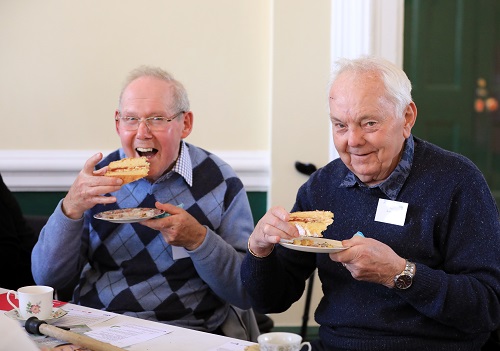Hannah Stranger-Jones, UnLtd’s director of research and impact, explores how a collaborative approach can produce solutions that are better targeted, and allow those with lived experience of a problem to design the solution.
Times are changing. Britain faces some monumental challenges, not least demographically, as almost half of the population are projected to be over 50 by 2020. This shift will have far-reaching consequences for our society and the economy. Social entrepreneurs have ambitious and innovative ideas that can help solve these problems, but we also know that there are barriers that prevent them from reaching their potential.
To help them, we need to re-assess how we come up with solutions to the challenges of an ageing society. We need to collaborate across the system, and bring together the people in later life with those who are designing products or services, be they social entrepreneurs, public sector commissioners or other stakeholders. We need to build on people’s experience and engage them in the design of those services, so that their needs and priorities are met. And we need to design programmes of support for social entrepreneurs which put them at the very heart of these conversations, and enable them to build the networks they need to thrive.
“There are people coming up to have their voice heard, and I think that’s how society and services have to change,” shared Claire, a social entrepreneur.
That’s why we launched Transform Ageing last year. Along with our partners, Design Council, South West Academic Health Science Network (SWAHSN) and Centre for Ageing Better, we have worked with communities in Cornwall, North Devon, Somerset and Torbay, to enable them to identify the challenges that they see as a priority for social entrepreneurs to tackle.
Based on the Design Council’s Framework for Innovation, we worked with people in later life, social entrepreneurs, caretakers and public sector leaders to understand what would improve people’s experience of ageing.
“What intrigued me about this programme was that it’s not led by us within the health service or social care,” said Sue, a commissioner who attended a Transform Ageing workshop.
In Cornwall, Torbay, North Devon and Somerset the Transform Ageing team held a series of 16 workshops. The workshops were designed to involve people in later life, and value and capture their knowledge. The purpose was to take a step back from trying to ‘fix’ a problem, to make sure we really understood the problem. A recently published ethnographic evaluation reviews the successes and challenges of using a design-led approach with multiple stakeholders in a community setting.
The insights from these workshops were turned into Innovation Briefs, and now we’re asking social entrepreneurs to turn their creative minds to respond to them. These six briefs cover steps to a positive future; mobility and transport; life transitions; caring about carers; right information, right time; making connections.
The briefs will give social entrepreneurs a chance to ensure their innovations are tailored to the priorities of the community and connected to the people they will serve. Each brief covers the outcomes we hope social entrepreneurs can bring about and highlights things people in later life told us were important.
This is a great opportunity for social entrepreneurs to develop local products and services that are better suited to the needs of people in later life and their support network.
But it’s the collaborations and relationships that sit behind those briefs that, if nurtured, have the potential to transform the system.
This combination of the creative solutions of social entrepreneurs and world class design has the potential to create real and lasting change. We want to see a world that understands the challenges and grasps the opportunities of an ageing society. And down in the south-west, we’re one step closer.
Hannah Stranger-Jones is UnLtd’s director of research and impact

